FAQ Schema – A Beginner's Guide
It works regardless of how old or newly built your website is. This is called FAQ schema.
This strategy is great for linking even if there are not many links.
The best part is that it's much faster than most SEO changes. It doesn't take long to change FAQ schema. You can see the results even faster, giving your website an immediate boost in the SERPs.
This style="font weight: 400 ;">, might not be aware of this SEO strategy. This is another reason to implement it immediately.
Google's Changing Search Results
Before I get into FAQ schema more in depth, I want you to read about Google's constantly changing search results.
Google not only changes its algorithm frequently, but also tests new design elements often.
Search for "food near me" and you will see a list of nearby restaurants and their ratings
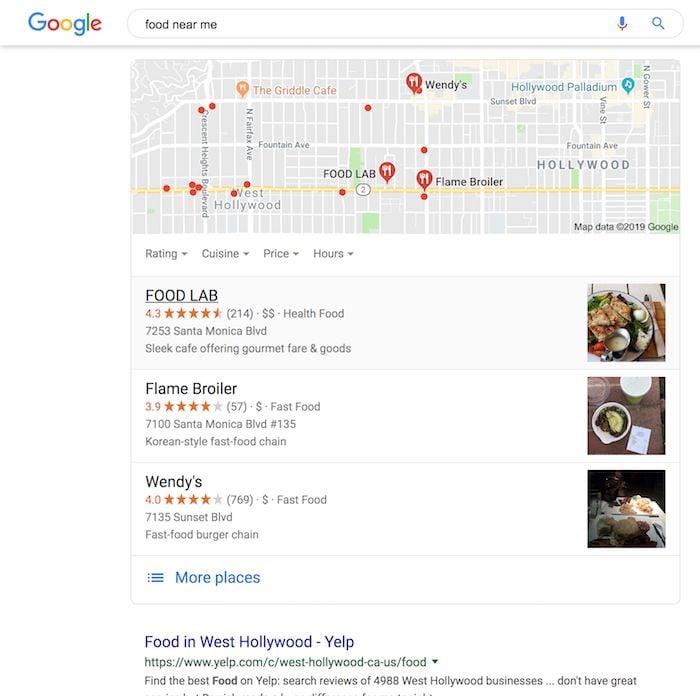
Google can show you a photo and brief overview of a person when you search for them.
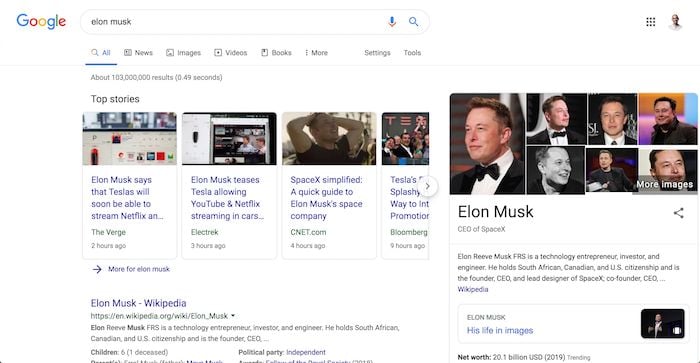
Google has over the years improved its search results to provide you with the best experience.
If you search for "2+2", Google displays results. You don't need to click through to get to a webpage.
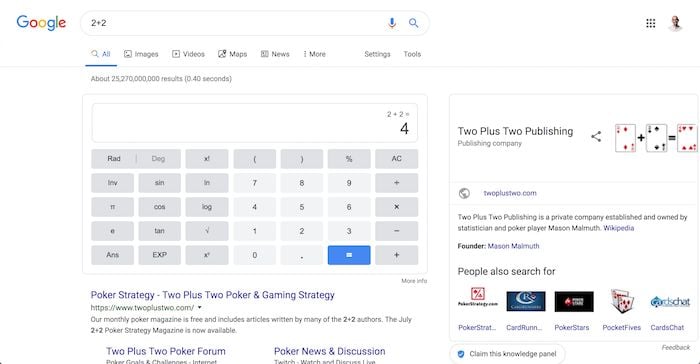
FAQ Schema markup may still be hidden.
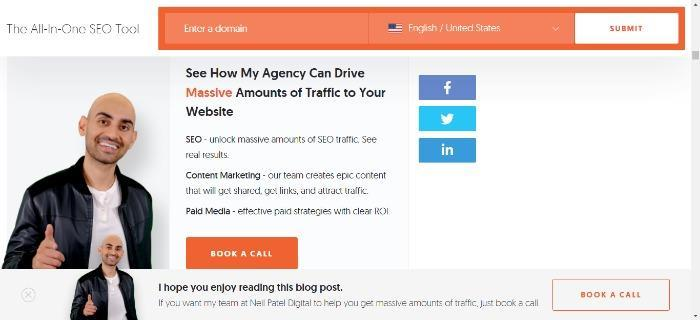
Let me explain: If you search for "digital marketing", you will see that I rank high on Google. However, my listing doesn't look like most people's:
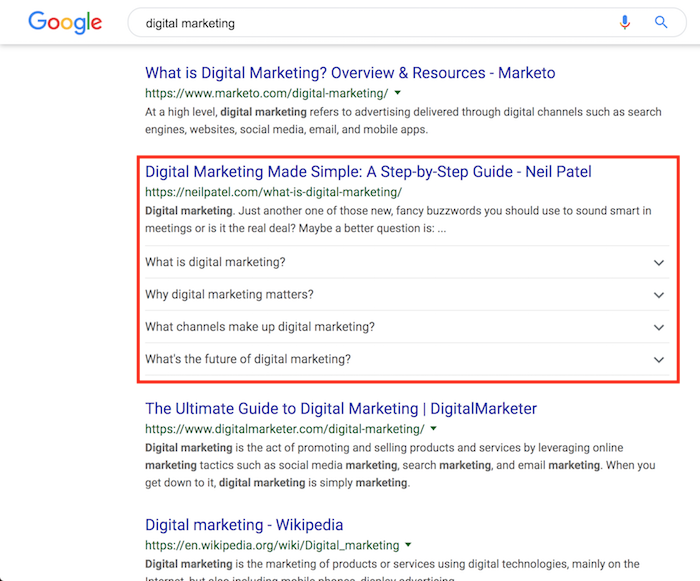
You can view here. Google pulled FAQ-rich results from my website.
It took me less than 30 minutes to accomplish it. Google quickly spotted the FAQ schema markup addition and updated its SERP listing.
30 minutes.
Answer Cards can be used to do the same thing for pages that are related to questions or answers. Answer cards allow you to indicate the answer to a question in your website's FAQ schema markup. Here's an example.
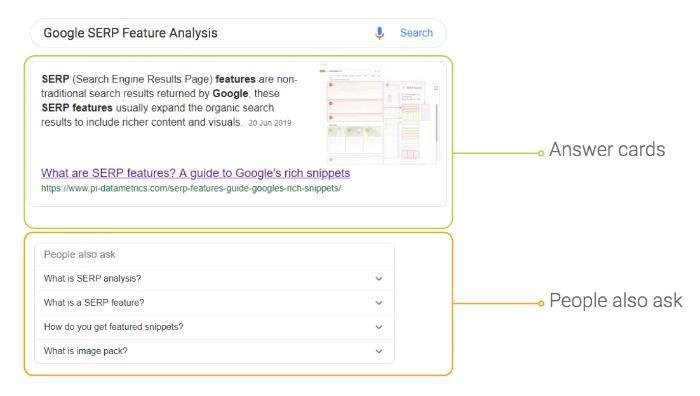
How can you do this best? Continue reading as I walk you through the process.
Selecting the Right Schema Markup : QA vs. FAQ Schema
Before you can add schema to your website, you need to choose the markup. There are many types of markup. The most popular one is FAQ schema.
This type of FAQ schema markup informs search engines that your website is a page answering frequently asked questions (FAQ). The FAQ schema is useful if you have a FAQ page.
This method, as you can see below gives you a collapsible list under your SERP results which reveals the answer to a user's question when they click on it:
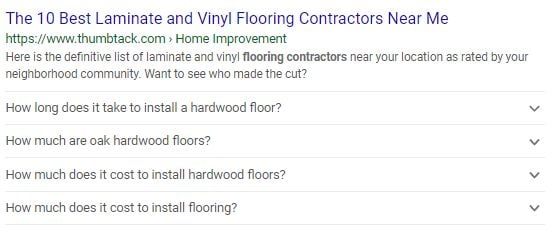
Google Assistant also shows FAQ Actions in the eligible results. This means that people who use voice search are more likely to see you.
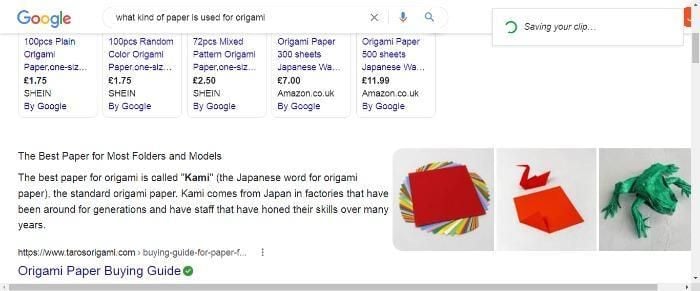
In comparison, you use a Q&A scheme where users contribute various types of answers and vote on the best. This gives rich result cards under the SERP and highlights the most relevant answer.
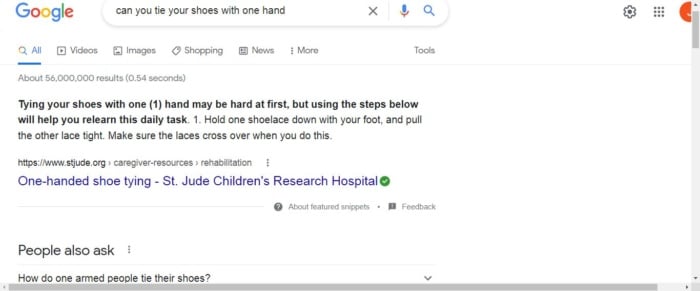
Google has updated its FAQ schema rich results so that website owners can now have two URLs in search. They look something like this:
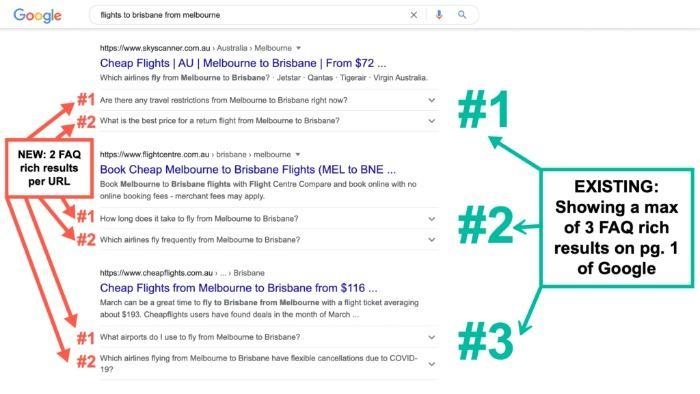
Now that you know the purpose of these various schemas, let us move on to Google's guidelines using FAQ Schemspan styling="font-weight 400 ;">.
Google's FAQ Schema-Markup Guidelines
Google provides a complete list of FAQ Schema Guidelines :
- If your FAQPage page has a list of questions or answers, you can use FAQPage. If you only have one question, QAPage is the best alternative. Users can submit alternate answers. Here are some examples.
Valid Use Cases:
-
The FAQ page was created by the site without any alternative questions being answered.
-
A product support webpage that lists FAQs but does not allow users to submit alternate answers.
Invalid Use Cases:
- Forum Pages reserved for posting one answer to a specific question.
-
A product support site where users can ask questions about a single issue.
-
A product page where users can submit multiple questions in one page.
-
Use FAQPage to advertise.
- Each question should contain the complete question text, and each answer should include the entire answer text. You can display the entire question text as well as the answer text.
-
It is possible to not display rich results that contain profane, obscene or sexually explicit content, graphically violent promotion of illegal or dangerous activities or hateful language.
-
All FAQcontent should be visible to the user from the source page.
Google has detailed guidelines for Q&A .
-
Use the QAPage markup only if you have information in question and answer format. This is one question followed with its answers.
-
The question must allow users to answer it. QAPage is not recommended for content with only one answer to a question. Users cannot add additional answers. Instead, use FAQPage. Here are some examples.
Use cases:
- Forum pages allow users to post responses to individual questions.
- Product Support Pages that allow users to answer specific queries.
Invalid Use Cases:
- FAQ pages created by the site themselves that don't allow users to provide alternate answers.
- Multiple questions/answers can be posted to product pages.
- Blog posts, How to guides, and essays that answer specific questions.
-
If some content is legible, you must not add QAPagemarkup on an entire forum or site.
- Do not use QAPagemarkup for your advertising.
-
Every question must contain the complete text of the question and answer.
-
Answermarkup is the only way to get answers to your questions.
- Google may not show your query and content as rich results , if it contains prohibited content like hateful language or sexually explicit material, or promotes illegal or dangerous activities.
A complete set of guidelines, restrictions and limitations for Q as well as A schema can be found on Google's developer page.
Once your content conforms to these guidelines, you can implement the schema on your site and choose the type of data to use.
How do I implement QA and FAQ Schema.
You can implement schema through JSON-LD, or Microdataspan styling="font-weight 400 ;">,. But first, let me tell you more.
JSON-LD, a schema definition language, describes the structure and meanings of JSON data. JSON-LD can be used to create your own schemas or to import existing ones from other sources. It is lightweight and extensible.
Microdata, on the other hand, uses a subset JSON format to provide additional information to HTML tags. This information helps to identify what data is being handled and to help with its management. Microdata can be used to mark up the name and email addresses of a person.
I suggest choosing one style for your website and sticking with it. For consistency, I would recommend avoiding using both styles on the same page.
If you are unsure which one to choose, Google recommends JSON -LD. Google is currently adding markup-powered feature support. It's easy to include JSON-LD in the header of your content.
Here are some examples of
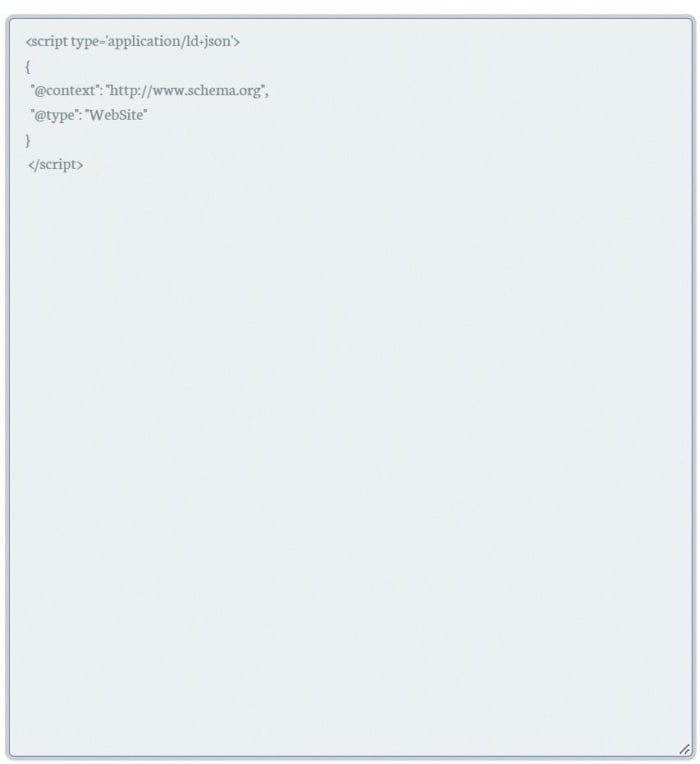
To make it easier to implement, you can use the same tool that I usedspan styling="font-weight 400 ;">.
I also tested Technical Search FAQ schema Mark-up Tool and got the following results:
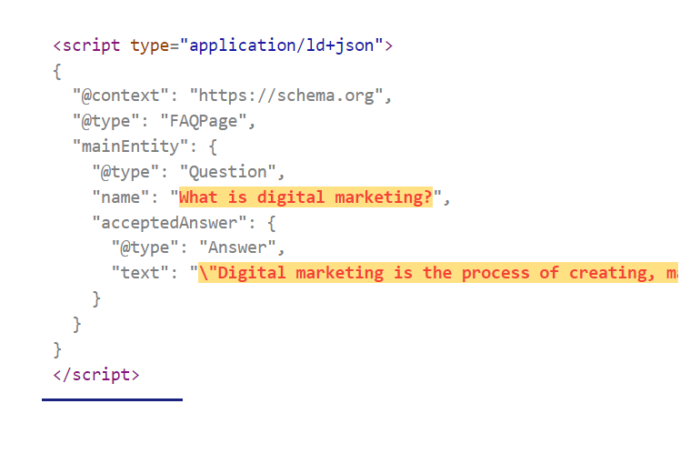
It is very easy to use the Technical SEO tool. Simply select the page type you wish to create and then add your questions and answers.
After you have finished, click the Google G' icon to check your rich results and structured data.
Now, let's move on to microdata.
Although it may seem complicated to create microdata codes like the one below, it is not. One of the many tools available for free to create your code, like I did here.
What's digital marketing?
p itemprop="text” class="faq–a">Digital Marketing is the creation, management, and execution of a marketing plan that makes use of digital technologies to reach customers. Digital marketing can include email marketing, social media marketing (SEO), and display advertising.
If you're implementing schema on your website please feel free to use these templates and add your text to them. Or, to keep things simple, I recommend the tools that I linked.
Google's Structured Data Testing tool can be used to verify that your code works correctly.
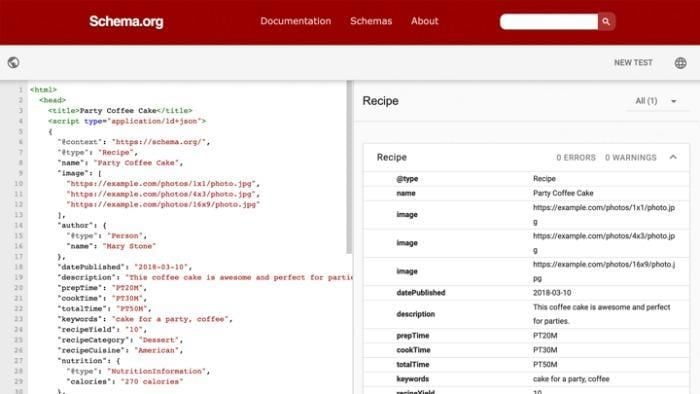
This tool can test your schema markup and rich result code and give you feedback about any issues or errors. Google's Rich Results Tester gives you a visual representation of how your structured data appears in the results.
Get Results with FAQ Schema in Less than 30 Minutes
Log in to Google Search Console and type the URL of any page that you have modified in the top search box.
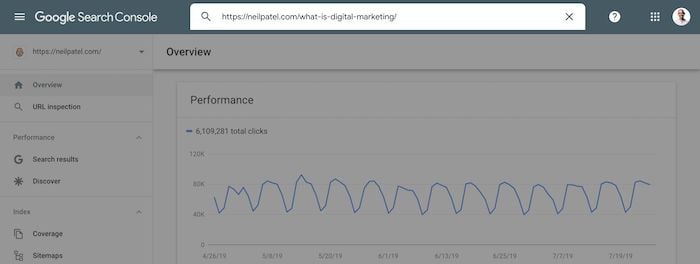
You can then ask Google to crawl your page and index it. All you have to do is click on "request indexing span>
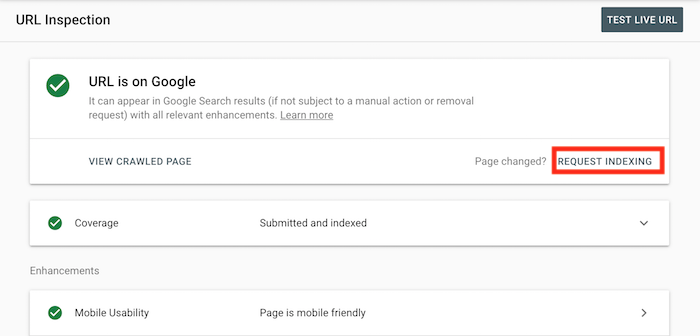
It usually takes less than 10 minutes for it to kick in. If you do a Google search, you will see the updated listing.
This is where the real work begins. Start with pages or terms that rank on page 1. This is where I have seen the greatest improvement.
Does The FAQ Schema Can Help Me Rank for People Also ask and Featured Snippets
Let me ask you a question: Can FAQ schema be used with People Also Ask and Featured Shortcuts?
To my knowledgespan styling="font-weight 400 ;">, There is no correlation between schema and People Also Ask or Featured Snappets. Optimizing your content for it isn't a bad thing and could increase your chances of being featured.
In the past Google tested to see if they could show these types FAQs, How-To results, and look at structured data to help them understand them.
Help Google understand your pages and participate in any Google experiments.
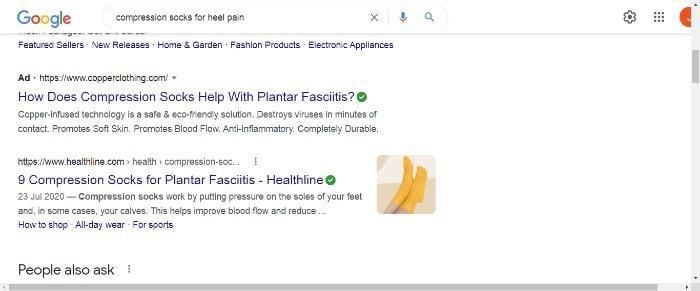
How Can I Use the FAQ Schema to Help Me Get Rank in Voice Search?
The short answer is: Yes!
FAQ schema is a great way for Alexa users to find your site. Recent stats show that there are approximately 20 million Alexa users in America. You want them to find your site!
Amazon is not the only one that does this.
Google and Apple also use voice search. There's good reason for that: voice search usage has increased in recent years among online users.
A survey by The Manifest shows that voice research is declining in popularity, but voice research is still popular with younger generations. In fact, 42 percent of respondents use voice search to find information.
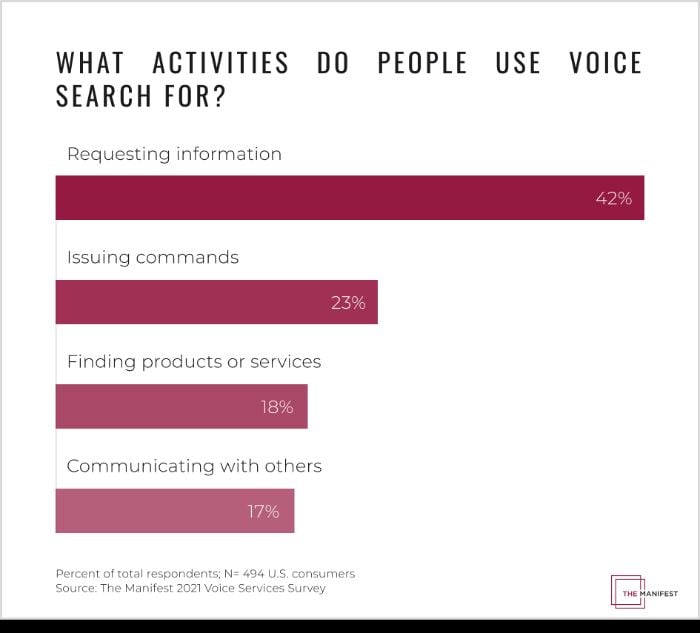
Voice search is also an accessibility tool that allows mobile users to find you while on the move. This gives you two more reasons why FAQ schema markup might be a good idea.
This is especially important considering that voice searches will make up over half of all Google searches in the near future.
Voice search questions get the majority of their answers via featured snippets.
Adding structured data to your website can increase the chances of you being included in featured snippets. This increases the likelihood of you being featured on voice searches.
For more strategies to rank for voice searches, I recommend these tips for voice search SEO
Conclusion
The simple act of adding FAQ schema to your website can increase brand visibility and improve your site's authority. This is a simple solution and can be implemented in a matter of days on your FAQ, product, or main question pages.
It has been a great tool for me in the past. I only need to pick keywords I rank high for.
While FAQ schema markup may seem complicated, there are many free tools that can help you make it. This extra step could give you an SEO advantage over other sites.
What are your thoughts on FAQ schema strategies? Are you a fan?
————————————————————————————————————————————–
By: Neil Patel
Title: FAQ Schema: A Beginner’s Guide – Neil Patel
Sourced From: neilpatel.com/blog/faq-schema/
Published Date: Mon, 15 Aug 2022 15:00:00 +0000
